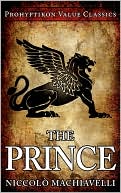Developing Your Theoretical Orientation in Counseling and Psychotherapy
Developing Your Theoretical Orientation in Counseling and Psychotherapy provides therapists-in-training with tools, strategies, and activities to formulate their response to the age-old question, "What's your theoretical orientation?" The underpinnings of counseling and psychotherapy are based in its theoretical foundation. This text gives students the understanding and the tools to develop a theoretical orientation throughout their training program. The innovative Second Edition incorporates...
Search in google:
Developing Your Theoretical Orientation in Counseling and Psychotherapy provides therapists-in-training with tools, strategies, and activities to formulate their response to the age-old question, "What's your theoretical orientation?" The underpinnings of counseling and psychotherapy are based in its theoretical foundation. This text gives students the understanding and the tools to develop a theoretical orientation throughout their training program. The innovative Second Edition incorporates cultural competencies and alternatives views of theoretical orientation, such as strategic eclecticism, as well as provides a greater focus on constructivist and family theories.
Chapter 1 Why Theoretical Orientation Is Important 1A Personal Experience 1The Big Puzzle 2What is Theoretical Orientation? 3The Helper's Tool Belt 3What Can A Theoretical Orientation Do For Me? 4How Have Others Picked A Theoretical Orientation? 5What If I'm Eclectic? 6Guidance From The Dodo Bird Effect: Do They All Work? 7Once I Have It, How Can I Use It? 8How Are Theoretical Orientation And Ethics Related? 8The Main Points 9Reflection Questions 9Chapter 2 Incorporating Theory Into Practice 11Making Theory Useful: A Model 11Theory Development 12Importance of Your Life Philosophy 13Schools of Thought 14Theories 15Goals And Techniques: Interventions At Work 16Counselors Are Diverse 17Resistance To Theories: Eclectic, Integrated, Or Just Don't Know 18Does It Really Work? 20What To Take Home 21Reflection Questions 22Chapter 3 Top 10 Ways to Find Your Theoretical Orientation 23Find Yourself 24Articulate Your Values 24Survey Your Preferences With The Selective Theory Sorter 26Use Your Personality 26Taking the MBTI 33Capture Yourself 33Let Others Inspire You In Your Learning 34Read Original Works 34Get Real 34Study With a Master 35Broaden Your Experinces 36Top 10 WRAP-UP 36Reflection Questions 37Suggested Readings and Webpages 37Chapter 4 Six Schools of Thought and Their Theories of Helping 43Psychodynamic School Of Thought 47Psychoanalytic Theory 47Analytical Theory 51Individual Psychology 54Behavioral School Of Thought 56Behavioral Therapy 57Humanistic School Of Thought 60Person-Centered 60Existential 62Gestalt 65Pragmatic School of Thought 67Cognitive Behavioral 68Rational Emotive Behavioral Therapy 69Reality Therapy 71Constructivist School Of Thought 73Multicultural Counseling and Therapy 73Feminist Therapy 75Narrative Therapy 77Solution-Focused Brief Therapy 80Family School Of Thought 81Bowen Family Systems Therapy 82Strategic Family Therapy 83Structural Family Therapy 84Summary 87Reflection Questions 87Chapter 5 Case Examples for Integrating Theory into Practice 89Clinician Case Studies 89Case 1 Evan 90Case 2 Jill 92Case 3 Garrett 93Case 4 Ryan 96Comment on the Cases 96Client Case Studies 97Case 1 Tony 97Case 2 Nancy 98Case 3 Brenda 98Supervisory Case Studies 99Case 1 Grace 99Case 2 Casey 100Case 3 Dominic 100Summary of Cases 101Putting It All Together 101Importance Revisited 101How Theory Is Found 102Empirically Validated Treatments 102Benefit of the ITS Model 103The Field 103References 105Index 111








